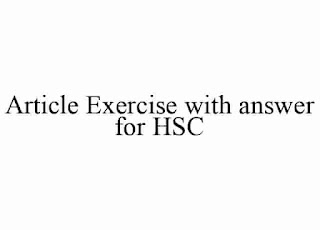Collocative meaning in Semantics
Collocative meaning consists of the associations a word acquire s on account of the meanings of the words, which tends to occur in its environment.
For instance the words pretty and handsome share common ground in the meaning of good looking. But may be distinguished by the range of noun in which they are like to occur or collocate; Pretty woman and handsome man. The ranges may well match although they suggest a different kind of attractiveness of the adjectives.
With the other word, collocative meaning is the meaning which a word acquires in the company of certain words. Words collocate or co-occur with certain words only e.g. Big business not large or great. Collocative meaning refers to associations of a word because of its usual or habitual co-occurrence with certain types of words. ‘Pretty’ and ‘handsome’ indicate ‘good looking’.
However, they slightly differ from each other because of collocation or co-occurrence. The word ‘pretty’ collocates with – girls, woman, village, gardens, flowers, etc.
On the other hand, the word ‘handsome’ collocates with – ‘boys’ men, etc. so ‘pretty woman’ and ‘handsome man’. While different kinds of attractiveness, hence ‘handsome woman’ may mean attractive but in a mannish way.
The verbs ‘wander’ and ‘stroll’ are quasi-synonymous- they may have almost the same meaning but while ‘cows may wonder into another farm’, they don’t stroll into that farm because ‘stroll’ collocates with human subject only.
With the other word, collocative meaning is the meaning which a word acquires in the company of certain words. Words collocate or co-occur with certain words only e.g. Big business not large or great. Collocative meaning refers to associations of a word because of its usual or habitual co-occurrence with certain types of words. ‘Pretty’ and ‘handsome’ indicate ‘good looking’.
However, they slightly differ from each other because of collocation or co-occurrence. The word ‘pretty’ collocates with – girls, woman, village, gardens, flowers, etc.
On the other hand, the word ‘handsome’ collocates with – ‘boys’ men, etc. so ‘pretty woman’ and ‘handsome man’. While different kinds of attractiveness, hence ‘handsome woman’ may mean attractive but in a mannish way.
Similarly one ‘trembles with fear’ but ‘quivers with excitement’. Collocative meanings need to be invoked only when other categories of meaning don’t apply.
Generalizations can be made in case of other meanings while collocative meaning is simply on idiosyncratic property of individual words. Collocative meaning has its importance and it is a marginal kind of category.



